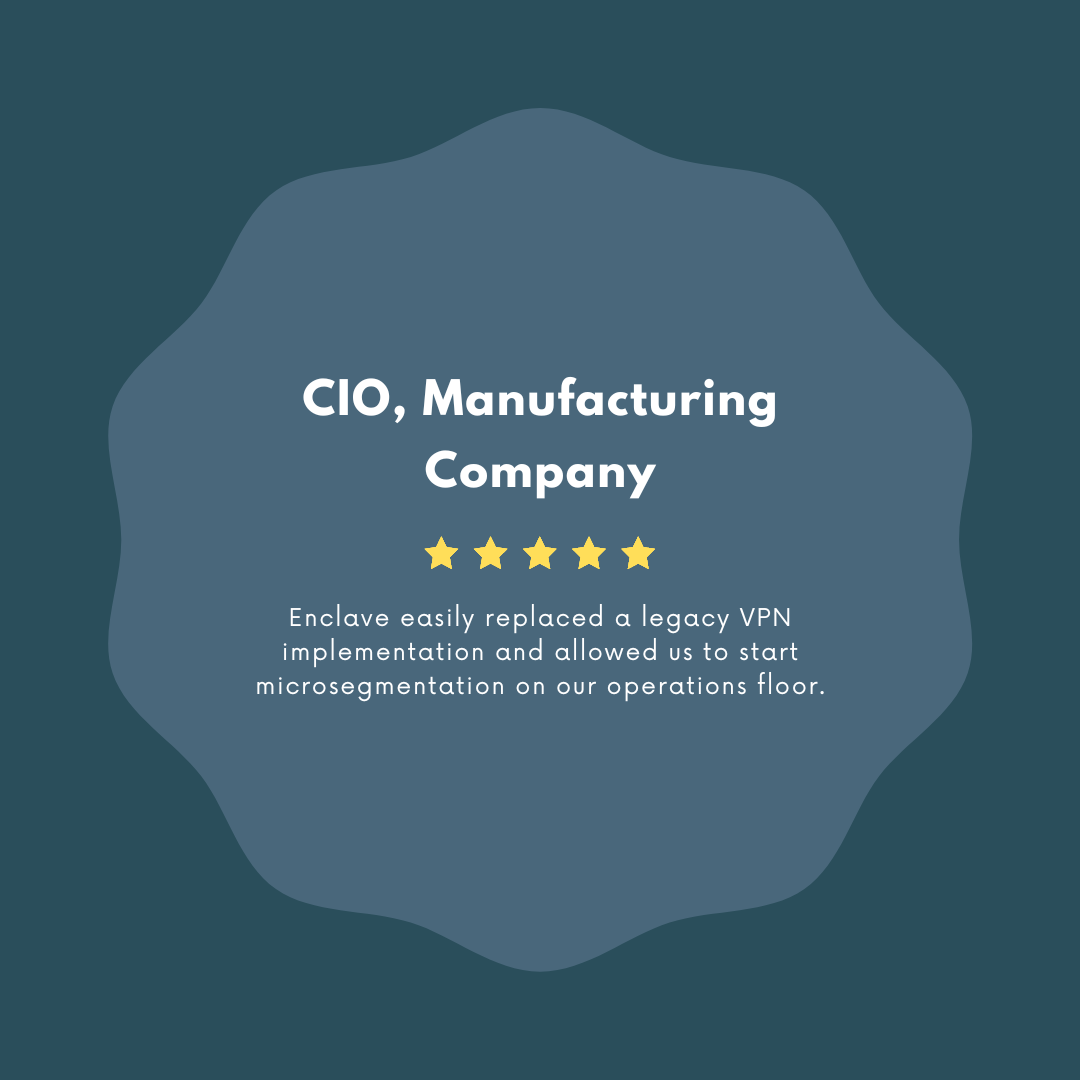Estimated reading time: 7 minutes
The quest for innovative solutions that not only enhance security but also streamline operations is paramount. As organizations grapple with the complexities of protecting their digital assets, the traditional tools once deemed sufficient are now being reevaluated. Among these, Virtual Private Networks (VPNs) have been a cornerstone for secure remote access. However, the advent of more sophisticated cyber threats and the shift towards a more dynamic IT environment demand a reimagining of secure access solutions. Enclave emerges as a compelling alternative to traditional VPNs, particularly in environments utilizing Netskope for cloud security and data protection.
The Limitations of Traditional VPNs
Before delving into the specifics of how Enclave serves as an effective VPN replacement, it’s crucial to understand the limitations inherent in traditional VPN technologies. VPNs, while providing an encrypted tunnel for data transmission, often fall short in today’s complex IT ecosystems.
Scalability Challenges
Traditional VPNs struggle to keep pace with the rapid expansion of corporate networks and the surge in remote users. This scalability issue not only affects performance but also complicates the management and deployment of VPNs across an organization.
Moreover, as businesses increasingly adopt cloud services, the need for a more flexible and scalable solution becomes evident. VPNs, with their fixed and location-centric architecture, are ill-suited to the dynamic nature of cloud computing and mobile workforces.
Security Vulnerabilities
While VPNs encrypt data in transit, they do not inherently segment network access or enforce granular access controls. This limitation presents a significant security risk, as once inside the VPN, an attacker or compromised user can potentially access a broad swath of the network.
Additionally, the reliance on a single point of encryption and decryption makes VPNs a lucrative target for cyber attackers. Breaching a VPN server can expose all connected systems and data to unauthorized access.
User Experience and Performance
The user experience with VPNs often leaves much to be desired. Connection issues, slow performance, and the need for constant re-authentication can frustrate users and hinder productivity.
This performance degradation is particularly pronounced when accessing cloud-based applications through a VPN, as the traffic must often be backhauled through the corporate network, introducing latency and bottlenecks.

Enclave: A Modern Solution
Enclave represents a paradigm shift in how organizations can secure remote access to their networks. By leveraging modern technologies and architectural approaches, Enclave addresses the limitations of traditional VPNs, offering a more secure, scalable, and user-friendly solution.
Scalability and Flexibility
Enclave’s architecture is designed for the modern, cloud-centric IT environment. It easily scales to accommodate an increasing number of users and devices without the performance bottlenecks associated with traditional VPNs.
Furthermore, Enclave’s flexibility allows for seamless integration with cloud services and applications, enabling organizations to adopt a secure access model that aligns with their cloud migration strategies.
Enhanced Security Features
Enclave goes beyond the basic encryption offered by VPNs, incorporating advanced security features such as microsegmentation, Zero Trust network access, and continuous authentication. These features ensure that access is strictly controlled and monitored, significantly reducing the attack surface.
By implementing a least privilege access model, Enclave minimizes the potential impact of a breach by restricting lateral movement within the network. This granular control over access rights is a critical component in defending against sophisticated cyber threats.
Improved User Experience
Enclave is designed with the end-user in mind, offering a seamless and intuitive access experience. Unlike VPNs, which can introduce latency and connectivity issues, Enclave ensures optimal performance and reliability.
Users benefit from faster access to applications and resources, regardless of their location or the device they are using. This improvement in performance and reliability enhances productivity and user satisfaction.
Enclave vs. Traditional VPNs: A Detailed Comparison
When comparing Enclave to traditional VPNs, several key differences emerge that highlight the superiority of Enclave in modern cybersecurity environments. One significant distinction lies in the approach to access control and segmentation.
While VPNs typically provide a blanket access permission once a user is authenticated, Enclave takes a more granular approach. By implementing microsegmentation and Zero Trust principles, Enclave ensures that users only have access to the resources they specifically need, reducing the risk of lateral movement by attackers.
Moreover, Enclave’s continuous authentication mechanisms add an extra layer of security compared to traditional VPNs, which often rely on single-factor authentication methods. This continuous validation of user identity helps prevent unauthorized access even after the initial login.
Scalability and Performance
Another area where Enclave outshines traditional VPNs is in scalability and performance. Traditional VPNs can struggle to handle the increasing demands of remote workforces and cloud-based applications, leading to performance bottlenecks and user dissatisfaction.
Enclave’s architecture is designed to scale effortlessly, ensuring that performance remains optimal even as the number of users and devices grows. By leveraging cloud-native technologies, Enclave can adapt to dynamic work environments without compromising on speed or reliability.
Compliance and Reporting Capabilities
Enclave’s advanced security features extend to compliance and reporting functionalities, providing organizations with detailed insights into access events and security posture. Compliance with industry regulations and internal policies is made easier through Enclave’s comprehensive logging and reporting capabilities.
Traditional VPNs often lack the detailed reporting mechanisms necessary for thorough compliance audits. Enclave’s ability to track and monitor access activities across the network and cloud environments ensures that organizations can maintain a robust compliance posture.
Enclave Deployment Best Practices
When deploying Enclave as a VPN replacement for Netskope, organizations should follow a set of best practices to maximize security and operational efficiency. One crucial aspect of deployment is the initial assessment of access requirements and user roles.
By defining clear access policies and user permissions, organizations can ensure that Enclave’s segmentation capabilities are effectively utilized. This step is essential for preventing unauthorized access and minimizing the impact of potential security breaches.
Furthermore, organizations should conduct thorough testing and validation of Enclave’s integration with Netskope to guarantee seamless operation and minimal disruption to existing workflows. Regular monitoring and updates are also vital to maintaining the security and performance of the Enclave deployment.
Training and User Education
As with any new technology implementation, user training and education play a critical role in the successful deployment of Enclave. Organizations should provide comprehensive training sessions to familiarize users with the new access mechanisms and security protocols.
By empowering users with the knowledge and skills to navigate Enclave effectively, organizations can mitigate potential user errors and enhance overall security posture. Regular refresher courses and updates on security best practices are essential to ensure ongoing compliance and awareness.
Continuous Evaluation and Optimization
Deploying Enclave is not a one-time task but an ongoing process that requires continuous evaluation and optimization. Organizations should regularly assess the effectiveness of Enclave’s security controls and access policies to identify areas for improvement.
By collecting and analyzing data on access patterns, user behavior, and security incidents, organizations can fine-tune Enclave’s configuration to align with evolving security requirements. This iterative approach to optimization ensures that Enclave remains a robust and reliable security solution over time.
Conclusion
As organizations continue to navigate the complexities of modern cybersecurity, the limitations of traditional VPNs become increasingly apparent. Enclave, with its advanced security features, scalability, and user-friendly design, offers a compelling alternative for secure remote access. When integrated with Netskope, Enclave extends its capabilities into the cloud, providing a comprehensive security solution that addresses the needs of today’s dynamic IT environments. By embracing these modern technologies, organizations can enhance their security posture, improve user experience, and streamline their security management processes.
Discover the Future of Secure Connectivity with Enclave
Ready to redefine your organization’s approach to secure remote access and cloud integration? Enclave offers a robust, user-friendly solution that aligns with the most stringent cybersecurity frameworks. Experience the power of micro-segmentation, enhanced visibility, and real-time vulnerability scanning tailored to your unique environment. Embrace the simplicity of a fully managed system that adapts to policy changes effortlessly. Don’t just take our word for it; see Enclave in action.
Book a demo today and step into the future of cybersecurity with confidence.



